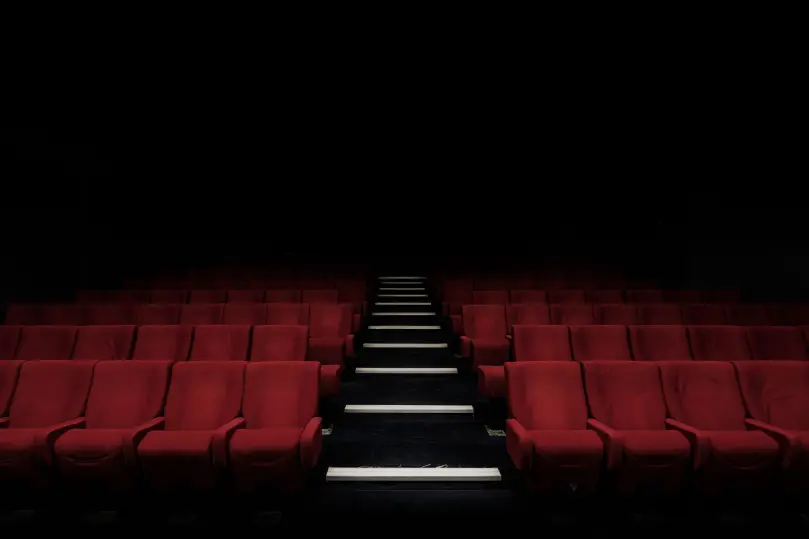2021iv12, Monday: Covid theatre.
We knew everything we needed to know to make people far safer from Covid a year ago. If there’s an inquiry, the question will be: why did we rely on hygiene theatre for so long?

Short thought: Ever since 9/11 catalysed an upsurge in security – and don’t get me wrong; I don’t challenge the principle at all – there have been voices accusing the Powers That Be of indulging in security theatre.
These aren’t crank voices. These aren’t the security equivalent of anti-vaxxers or the masks=muzzles brigade. These are smart, thoughtful people, who point out that many security measures do very little actually to make us more secure, but do far more to give the impression that the problem is being taken seriously.
Security theatre has at least three major risks – and these are only the ones that occur with a minute or two of thinking, so there are probably far more.
First, it makes people think the problem is solved, when not even symptomatic relief is being supplied. Second, it gives people information about what they need to do that simply isn’t accurate, meaning they’ll focus on false friends instead of actually mitigating risks. And thirdly, in a world of limited resources, there’s an immense opportunity cost of spending time, money and (most important) attention on the wrong things instead of the right things – particularly since inertia (and the fear of looking like you’re “not protecting people”) means it’s incredibly hard to stop doing the theatrical stuff. A bit like crime: even though the only way prison works as a crime reduction strategy is by keeping criminals off the streets, which for many forms of low-grade offending is a short term gain for a long term loss, politicians almost never admit it in public. As HL Mencken put it, for every complex problem there’s an answer that’s clear, simple and wrong.
Now, security theatre isn’t always wrong, or a waste. Sometimes it embeds trust where trust is both genuine, and needed, and in short supply. But mostly, it’s the other way round.
Why talk about security theatre just now? Because according to Zeynep Tufecki, who continues to be one of the smartest, sanest voices on our pandemic predicament, we’ve done the same with Covid. Her most recent newsletter details the nearest thing to a natural experiment in the spreading of Covid: the cruise ship Diamond Princess, which trapped thousands of people in a closed environment as the Bug spread. Passengers were isolated in cabins. Everything was cleaned. No-one had the chance to cough on anyone else once they were symptomatic.
And yet, tragically, more than 700 people were infected and 14 died.
Zeynep’s point is this. The Diamond Princess was hard evidence that Covid spread primarily not through droplets, or through shared surfaces, but through aerosol distribution; on an asymptomatic basis; and via super-spreader clusters rather than evenly. (This was reinforced later by the experience of a choir in the US, where several dozen people got together to sing, in a big space, properly distanced, properly disinfected – and most of them got sick.)
And this was in February 2020. Research followed quickly. And by the middle of last year, at the very latest, it was clear that 2-metre rules and obsessive cleaning were at best tinkering. What mattered was masking, avoiding close contact and crowds, minimising enclosed spaces, making sure ventilation worked. The essential, critical basics.
So taking the UK: why didn’t we do this quicker? Why instead did we load ourselves down with complex legislation that even us lawyers struggled to unpick, changed sometimes at literally a few minutes’ notice; with exact instructions about distancing; with orders and threats rather than encouragement and collaboration; with quantitative measures, not qualitative ones; with a focus on the tinkering, not on the core?
I don’t know. If we ever get an inquiry, I want it to focus on this. I suspect it’s a combination of a refusal to trust people to be their brothers’ and sisters’ keepers, of a tendency to see everything as a zero-sum exercise in winning rather than a humbler matter of finding what works, and possibly – heaven forfend – an unconscious reluctance to see the Asia-Pac success as something that can be generalised, rather than something specific that was to the region. Something “cultural”. Was there an ethnic bias in there? Something arising from an overblown self-image of some uniquely freedom-loving people? Again, I don’t know. But I wouldn’t rule it out.
Anyhow. Zeynep’s piece is worth your time. Its explanatory power is impressive. Its analysis likewise. The final paragraph hits home:
I realize that there is a lot of focus on misinformation that we recognize: the claims of 5G spreading via vaccines, of many deaths following vaccination, claims that vaccines don’t work at all, or even the idea that vaccines might have caused the death of a 99-year old, already visibly infirm, prominent member of the royal family in the United Kingdom. I understand all that and the role of such misinformation. But as I close the misinformation trifecta series about problems beyond the ones that are “over there,” committed by others, I’d like us not to forget what actually happened in more mainstream and arguably more important circles, and is still influencing how we have been responding—and failing to respond—to this pandemic.
Please don’t let that stop you reading the rest.



